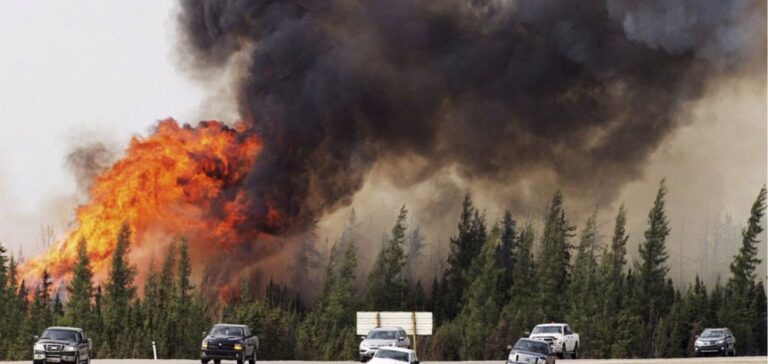Forest fires in Alberta represent a growing risk to the region’s oil operations. Suncor Energy, Canada’s second largest oil company, has been forced to temporarily reduce production at its Firebag site near Fort McMurray. Although the fire is about eight kilometers from the plant, the situation remains worrying.
The Calgary-based company has evacuated non-essential employees and is keeping the site ready to resume full production as soon as conditions allow. Alberta Wildfire, the province’s fire management agency, reported that the fire, covering around 12,000 hectares, has not yet reached infrastructure.
Fire-fighting efforts
In response to the crisis, 142 firefighters and 14 helicopters, two of which could fly at night, were deployed to contain the blaze. Authorities reported significant fire growth on its eastern flank, the furthest from Suncor’s facilities. Weather conditions and the nature of the terrain complicate control efforts.
Impact on the energy sector
This situation highlights the challenges faced by oil companies due to extreme weather conditions. The oil sands industry, essential to the Canadian economy, is particularly vulnerable to forest fires. Suncor, like other industry players, must adapt its operations to manage these risks.
Experts point out that the frequency and intensity of forest fires in Alberta could increase with climate change, requiring more robust adaptation strategies for companies operating in the region.
Analysis of future prospects
Incidents like this raise crucial questions about the sustainability of energy operations in high-risk areas. The industry needs to invest more in prevention and risk management technologies to protect its assets and employees. Government policies will also have to evolve to support these efforts and guarantee the safety and resilience of energy infrastructures.
The current situation in Alberta is a stark reminder of the impact of climate change on key industries. Fire-fighting efforts need to be stepped up to protect critical infrastructure, while long-term measures need to be put in place to strengthen the energy sector’s resilience to natural disasters.






















